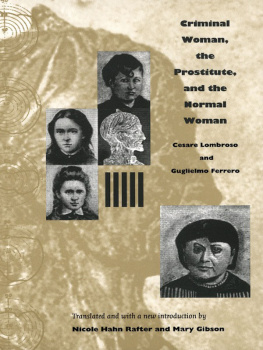Cesare Pavese - Among Women Only
Here you can read online Cesare Pavese - Among Women Only full text of the book (entire story) in english for free. Download pdf and epub, get meaning, cover and reviews about this ebook. genre: Art. Description of the work, (preface) as well as reviews are available. Best literature library LitArk.com created for fans of good reading and offers a wide selection of genres:
Romance novel
Science fiction
Adventure
Detective
Science
History
Home and family
Prose
Art
Politics
Computer
Non-fiction
Religion
Business
Children
Humor
Choose a favorite category and find really read worthwhile books. Enjoy immersion in the world of imagination, feel the emotions of the characters or learn something new for yourself, make an fascinating discovery.

- Book:Among Women Only
- Author:
- Genre:
- Rating:5 / 5
- Favourites:Add to favourites
- Your mark:
- 100
- 1
- 2
- 3
- 4
- 5
Among Women Only: summary, description and annotation
We offer to read an annotation, description, summary or preface (depends on what the author of the book "Among Women Only" wrote himself). If you haven't found the necessary information about the book — write in the comments, we will try to find it.
Among Women Only — read online for free the complete book (whole text) full work
Below is the text of the book, divided by pages. System saving the place of the last page read, allows you to conveniently read the book "Among Women Only" online for free, without having to search again every time where you left off. Put a bookmark, and you can go to the page where you finished reading at any time.
Font size:
Interval:
Bookmark:
AMONG WOMEN ONLY
Cesare Pavese
English translation of Tra donne sole , 1949, by R.W. Flint
Contents
I arrived in Turin with the last January snow, like a street acrobat or a candy seller. I remembered it was carnival time when I saw the booths and the bright points of acetylene lamps under the porticoes, but it was not dark yet and I walked from the station to the hotel, peering out from under the arches and over the heads of the people. The sharp air was biting my legs and, tired as I was, I huddled in my fur and loitered in front of the shop windows, letting people bump into me. I thought how the days were getting longer, that before long a bit of sun would loosen the frozen muck and open up the spring.
That was how I saw Turin again, in the half light under the porticoes. When I entered the hotel, I thought of nothing but a hot bath, stretching out, and a long night. Especially since I had to stay in Turin for quite a while.
I telephoned no one and no one knew I was staying at that hotel. Not even a bunch of flowers was waiting for me. The maid running my bath talked to me, bent over the tub, while I was exploring the room. A man, a valet, wouldn't do such things. I asked her to go, saying that I would be all right alone. The girl babbled something, standing in front of me, wringing her hands. Then I asked where she came from. She reddened brightly and said she was Venetian. ''One can tell," I said. "And I am from Turin. You'd like to go home, I imagine?"
She nodded with a sly look.
"Then remember that I've just come home," I said. "Don't spoil the pleasure for me."
"Excuse me," she said. "May I go?"
When I was alone in the warm water, I closed my eyes; they ached from too much pointless talking. The more I convince myself that there's no point in talking, the more I seem to talk. Especially among women. But my tiredness and a slight feverishness soon dissolved in the water and I thought of the last time I had been in Turin, during the war, the day after a bombing raid. All the pipes were burst, no bath. I thought with pleasure: as long as life contains baths, living is worth the effort.
A bath and a cigarette. While I smoked, I compared the sloshing that comforted me now to the tense life I'd been leading, to the storm of words, my impatient desires, to the projects I'd always carried through, although this evening everything had come down to this tub and this pleasant warmth. Had I been ambitious? I saw the ambitious faces again: pale, marked, convulsed facesdid one of them ever relax for a peaceful hour? Not even when you are dying does that passion slow up. It seemed that I had never relaxed for a moment. Perhaps twenty years before, when I was a little girl playing in the streets and waiting excitedly for the season of confetti, booths, and masks, perhaps then I could let myself go. But in those years the carnival meant only merry-go-rounds, torrone, and cardboard noses. Later there was a fever to go out, to see Turin and run through it; there were my first adventures in the alleys with Carlotta and the other girls, when, hearts beating, we felt ourselves being followed for the first time: all that innocence had come to an end. Strange. The evening of the Thursday before Lent when father was growing worse just before dying, I cried with anger and I hated him, thinking of the holiday I was losing. Only mother understood me that evening, teased me and told me to get out from under her feet and go and cry in the yard with Carlotta. But I was crying because the fact that Papa was about to die terrified me and kept me from letting myself go at the carnival.
The telephone rang. I didn't move from the tub, because I was happy with my cigarette. I thought that it was probably on just that distant evening that I told myself for the first time that if I wanted to accomplish something, or get something out of life, I shouldn't tie myself to anyone as I had been tied to that embarrassing father. I had succeeded, and now my whole pleasure was to dissolve myself in warm water and not answer the telephone.
It began to ring again, apparently irritated. I didn't answer, but I got out of the bath. I dried myself slowly, seated in my bathrobe, and was rubbing face cream around my mouth when someone knocked. "Who is it?"
"A note for the signora."
"I said I'm not in."
"The gentleman insists."
I had to get up and turn the key. The impertinent Venetian handed me the note. I looked at it and said to the girl: "I don't want to see him. He can come back tomorrow."
"The signora is not going down?"
My face felt plastered, I couldn't even manage a frown. "I'm not going down. I want tea. Tell him tomorrow at noon."
When I was alone, I took the receiver off, but they answered right away from the office. The voice rasped helplessly on the table like a fish out of water. Then I shouted something into the phone; I had to say who I was, that I wanted to sleep. They wished me good night.
Half an hour later the girl had still not returned. This happens only in Turin, I thought. I did something I had never done before, as though I were a silly girl. I slipped into my dressing gown and half opened the door.
Out in the corridor a number of peoplemaids, patrons, my impertinent Venetianhad crowded in front of a door. Someone exclaimed something sotto voce.
Then the door opened wide, and slowly, very carefully, two whiteshirts carried out a stretcher. Everyone fell silent and gave way. On the stretcher lay a girl with a swollen face and disordered hair, shoeless but wearing an evening gown of blue tulle. Though her lips and eyelids were motionless, one could imagine her having had a lively expression. Instinctively I glanced under the stretcher to see if there were blood dripping down. I searched the facesthe usual faces, one pursed up, another apparently grinning. I caught the eye of my maidshe was running behind the stretcher. Over the low voices of the circle (which included a woman in furs, wringing her hands), I heard the voice of a doctor; he had come out of the door, drying his hands on a towel and saying that it was all over, to please get out of the way.
The stretcher disappeared down the stairs, as someone said: "Easy now." I looked at my maid again. She had already run to a chair at the end of corridor and returned with the tea tray.
"She was taken sick, poor girl," she said, coming into my room. But her eyes were shining and she couldn't contain herself. She told me everything. The girl had come to the hotel in the morning from a party, a dance. She had locked herself in her room; she hadn't gone out all day. Someone had telephoned; people were looking for her; a policeman had forced the door. The girl was on the bed, dying.
The maid went on: "Poisoning herself at carnival time, what a shame. And her family is so rich... They have a beautiful house in Piazza d'Armi. It'll be a miracle if she lives..."
I told her I wanted more water for my tea. And not to dawdle on the stairs this time.
But that night I didn't sleep as I had hoped to. Squirming in bed, I could have kicked myself for having stuck my nose into the corridor.
The next day they brought me a bunch of flowers, the first narcissi. I smiled, thinking that I had never received flowers in Turin. The order had come from that owl Maurizio, who had thought of surprising me on my arrival. Instead, the thing had gone wrong. It happens in Rome too, I thought. I imagined Maurizio, unhappy, wandering aimlessly down the Via Veneto after our goodbyes and between the last coffee and first aperitif filling out the order form.
I wondered if the girl of yesterday had had flowers in her room. Are there people who surround themselves with flowers before dying? Perhaps it's a way of keeping up one's courage. The maid went to find me a vase, and while she helped me to arrange the narcissi, she told me that the papers hadn't mentioned the attempted suicide. "Who knows how much they are spending to keep it quiet? They took her to a private clinic... Last night they investigated. There must be a man mixed up in it... There ought to be a law for getting a girl..."
Next pageFont size:
Interval:
Bookmark:
Similar books «Among Women Only»
Look at similar books to Among Women Only. We have selected literature similar in name and meaning in the hope of providing readers with more options to find new, interesting, not yet read works.
Discussion, reviews of the book Among Women Only and just readers' own opinions. Leave your comments, write what you think about the work, its meaning or the main characters. Specify what exactly you liked and what you didn't like, and why you think so.







